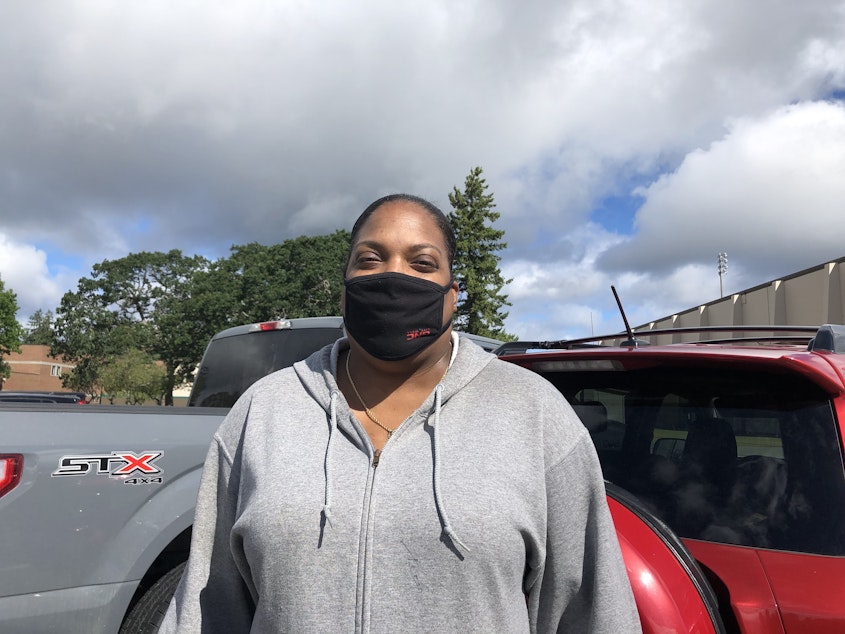Washington among top states for food insecurity for military families
The economy is gradually rebounding as Covid restrictions loosen. But many families continue to struggle with not having enough to eat. That’s especially true for military families.
Military families don’t usually like to ask for help; it's part of the culture. But on a recent Saturday, at Clover Park High School in Lakewood, Tacoma, two rows of cars inch their way to the parking lot.
After volunteers check their registration, they move to the next station where another group of volunteers load up their trunks with canned foods, cereal, bread, and fresh produce. A DJ is playing tunes, creating a party-like atmosphere.
Brittany Miller is waiting her turn. Her spouse is an active member of the Army. She says before the pandemic, they were able to manage financially. She worked in childcare. But her hours drastically changed.
“They were reduced because of the pandemic,” Miller says. “I wasn’t needed.”
Now they’re relying on a single income. And it’s not easy.
Sponsored
Food insecurity has been issue for military families. Shannon Razsadin, Executive Director of the nonprofit Military Families Advisory Network, notes that before the pandemic, one in eight families was having trouble putting food on the table. Last year, it was one in five.
“Because of the military life and what the military requires of its families, it’s not all that surprising that families would be experiencing this,” she says.
Razsadin says on average military families move every two and a half years. While most civilians stayed put during the pandemic, military families continued to move. That means new homes, new schools, new daycares. Each move comes with costs and unexpected purchases. And they add up.
“If you’re moving from a warm weather to a cold weather climate, there are these hidden costs that can put families at a disadvantage related to their finances,” Razsadin said. In many cases, the families rely on a single income to sustain the household, says Razsadin.
Getting help can be complicated, too. They don’t qualify for federal food assistance because their military housing allowance is counted as income. And the constant move makes it difficult to establish an emergency contact or support network.
Sponsored

Washington is one of seven states with the highest level of food insecurity. It’s one reason why the Military Families Advisory Network hosted the food distribution event in Lakewood. And it’s not just for those on active duty.
January Adams is a veteran with a military career of than 15 years. Her disability check covers rent and utilities. She says it requires some budget maneuvering to pay other bills. But sometimes, there’s not enough money to buy food for herself and her two teenage daughters.
“People think girls don’t eat, yes they do!” she laughed. And when money is short, she goes to the food bank.
“That helps with being able to feed your family and not worry about where the next meal is going to come from,” said Adams.
Sponsored
At this event, 600 families came out, with 60 more on a wait list. The need is great enough that MFAN says it expects to host another event in the fall.




